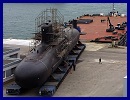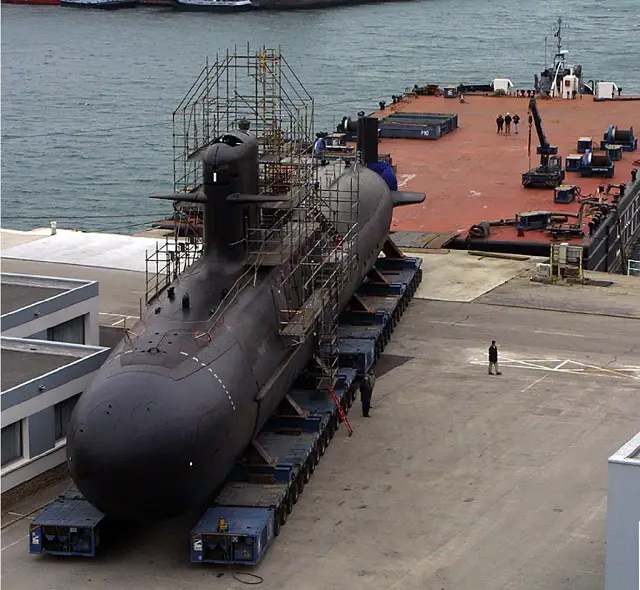The
Indian Navy is in dire need of more submarines. But the plan to build
six next-generation underwater boats with foreign collaboration, which
has been in the works for long, is stuck in the labyrinth of the bureaucratic
muddle. Project 75 India, under which the new submarines are to be built,
has failed to take off as a number of critical issues regarding construction
modalities are yet to be sorted out between the defence ministry and
the navy.
The failure of the two sides to find common ground has further set back
the 30-year submarine building programme, which was approved by India
in 1999 to overhaul its ailing fleet.
While under Project 75 - another part of the programme - a periodic
delivery of the French Scorpene submarines (which are being constructed
by Mumbai's Mazagon Dock Limited) should have already begun, the first
of the lot will not be ready for induction before 2015. The final one
is expected to be finished by 2020.
What this means is that for now, the navy will have to make do with
its ageing fleet comprising 10 Russian Kilo class and four German HDW
submarines. The prospect raises serious security concerns as India's
two main adversaries, Pakistan and China, boast of a fairly wellequipped
fleet. |
While Pakistan has the superior
French Augusta 90B conventional submarines, China is armed with nuclear
submarines capable of firing ballistic missiles.
Consequently, the navy is treading a cautious path as it doesn't want
to worsen the situation and hopes that the construction modalities for
Project 75 India would soon be sorted out and bids invited from the foreign
contractors for the same.
The project is crucial for the navy bosses because it is their last chance
to source foreign expertise, as the next batch of submarines will be built
completely indigenously.
The navy is counting on foreign help to master technologies such as missile
launch capability and air independent propulsion (AIP), among others.
In the arrangement finalised by the defence ministry for Project 75 India,
three submarines were to be built at government owned Mazagon Dock Limited
and one at the Hindustan Shipyard Limited.
The construction of the other two underwater boats will either be assigned
to a private shipyard in the country or bought from abroad.
The differences in the approach to execute the project have led to the
appointment of various committees to resolve the stalemate.
At the current pace, the request for proposal could be sent to the foreign
contractors only by next year, which means that contracts will not be
in place for another twothree years. As a result, the delivery will be
delayed much beyond the 30-year deadline.
All major submarine makers have already responded to the request for information
sent in August 2010. |









